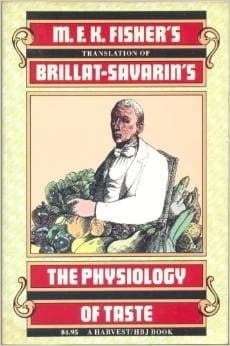
Book Review Summary: The Physiology of Taste: Or, Meditations on Transcendental Gastronomy
Introduction
"The Physiology of Taste: Or, Meditations on Transcendental Gastronomy" by Jean Anthelme Brillat-Savarin is a classic work that explores the relationship between food and culture. This book, first published in 1825, has been praised for its unique perspective on gastronomy and its ability to evoke the pleasure of tasting various foods. Brillat-Savarin, a French lawyer and politician, shares his thoughts, knowledge, and opinions on food and its impact on society. In this article, we will delve into the book's content, analyze readers' opinions, and provide reasons for recommending or not recommending it.
About Jean Anthelme Brillat-Savarin
Jean Anthelme Brillat-Savarin was a French lawyer and politician who gained fame as an epicure and gastronome. Born in Belley, Ain, he studied law, chemistry, and medicine before practicing law in his hometown. Brillat-Savarin was known for his love of food and his belief that it defines a nation. His book, "The Physiology of Taste," reflects his passion for gastronomy and his desire to explore the relationship between food and culture.
Analysis of Views
- Gastronomic pleasure: Readers praise the book for its ability to evoke the pleasure of tasting various foods. Brillat-Savarin's descriptions of food and drink are vivid and evocative, making readers hungry and eager to try new dishes.
- Historical context: Many readers appreciate the historical context provided by Brillat-Savarin. The book includes references to French literature and history, giving readers a glimpse into the cultural landscape of the time. This historical context adds depth and richness to the book's exploration of gastronomy.
- Personal anecdotes: Brillat-Savarin's personal anecdotes and stories add charm and interest to the book. Readers enjoy learning about his experiences with food and his observations on various culinary traditions. These stories make the book more engaging and relatable.
- Unique perspective: Some readers find Brillat-Savarin's perspective on gastronomy refreshing and unique. He explores not only the taste and quality of food but also its social and cultural significance. This broader perspective sets the book apart from other works on gastronomy.
- Accessibility: The book is accessible to readers with varying levels of knowledge about food and gastronomy. Brillat-Savarin's writing style is engaging and easy to understand, making it accessible to both experts and novices alike.
Reasons for Recommendation
- Delightful read: Many readers recommend "The Physiology of Taste" as a delightful read that offers a unique perspective on gastronomy. The book's vivid descriptions of food and personal anecdotes make it entertaining and enjoyable.
- Historical context: The historical context provided by Brillat-Savarin adds depth and richness to the book. Readers appreciate learning about the cultural landscape of France during the early 19th century and how it influenced food traditions.
- Personal insights: The personal anecdotes shared by Brillat-Savarin offer valuable insights into the world of gastronomy. Readers find his observations on food and its impact on society thought-provoking and enlightening.
- Accessibility: The book's accessibility makes it appealing to readers with different levels of knowledge about food and gastronomy. Its engaging writing style and clear explanations make it easy to understand, even for those who are new to the subject.
- Timeless relevance: Despite being written over a century ago, "The Physiology of Taste" remains relevant today. Its exploration of the relationship between food, culture, and society continues to resonate with readers, making it a timeless classic in the field of gastronomy.
Reasons for Not Recommendation
- Disjointed structure: Some readers find the book's structure disjointed and meandering. They feel that some essays go off on tangents and lack organization, making it difficult to follow at times. This disjointed structure may not appeal to readers who prefer a more structured narrative.
- Lack of scientific rigor: Some readers criticize the book for lacking scientific rigor in its exploration of gastronomy. While Brillat-Savarin's personal experiences and observations are valuable, some readers feel that he relies too heavily on anecdotal evidence rather than scientific research. This lack of scientific rigor may be a drawback for readers seeking a more comprehensive understanding of gastronomy.
- Overemphasis on French cuisine: Some readers feel that Brillat-Savarin places too much emphasis on French cuisine and fails to explore other culinary traditions adequately. While French cuisine is undoubtedly renowned, readers who are interested in exploring diverse culinary traditions may find this bias limiting.
- Outdated language: The book's translation from French to English can sometimes result in outdated language that may be difficult for modern readers to understand or appreciate fully. Some readers find the language archaic or cumbersome, which can detract from their enjoyment of the book.
- Limited scope: While "The Physiology of Taste" offers valuable insights into gastronomy, some readers feel that its scope is limited compared to more comprehensive works on the subject. They may seek a broader exploration of gastronomy beyond the confines of Brillat-Savarin's personal experiences and observations.
Conclusion
"The Physiology of Taste: Or, Meditations on Transcendental Gastronomy" by Jean Anthelme Brillat-Savarin is a classic work that has captivated readers with its unique perspective on gastronomy and its vivid descriptions of food and drink. While some readers appreciate its historical context, personal anecdotes, and timeless relevance, others find it disjointed, lacking scientific rigor, or overemphasizing French cuisine. Overall, the book offers valuable insights into the relationship between food, culture, and society, making it a worthwhile read for those interested in exploring these themes.